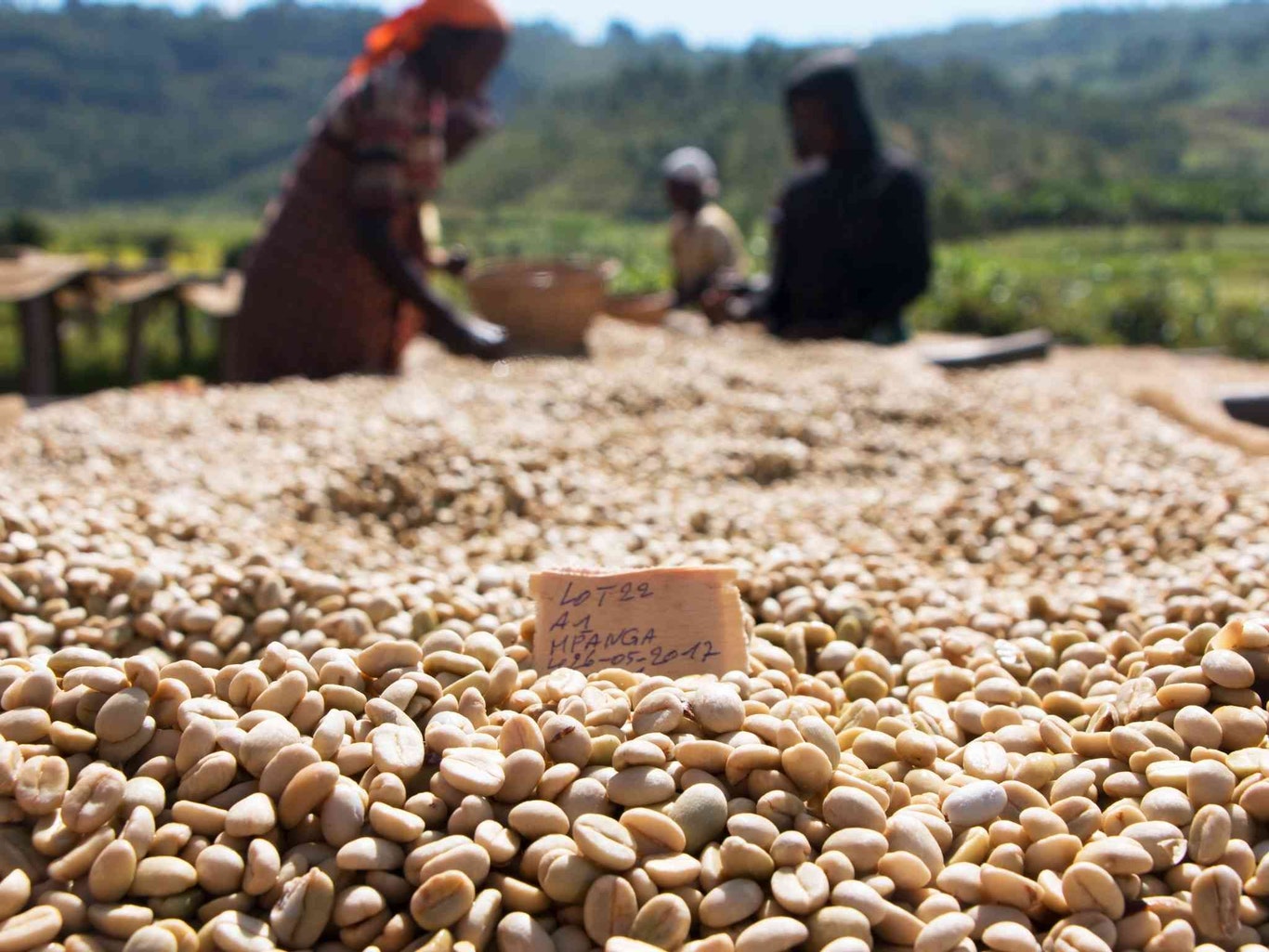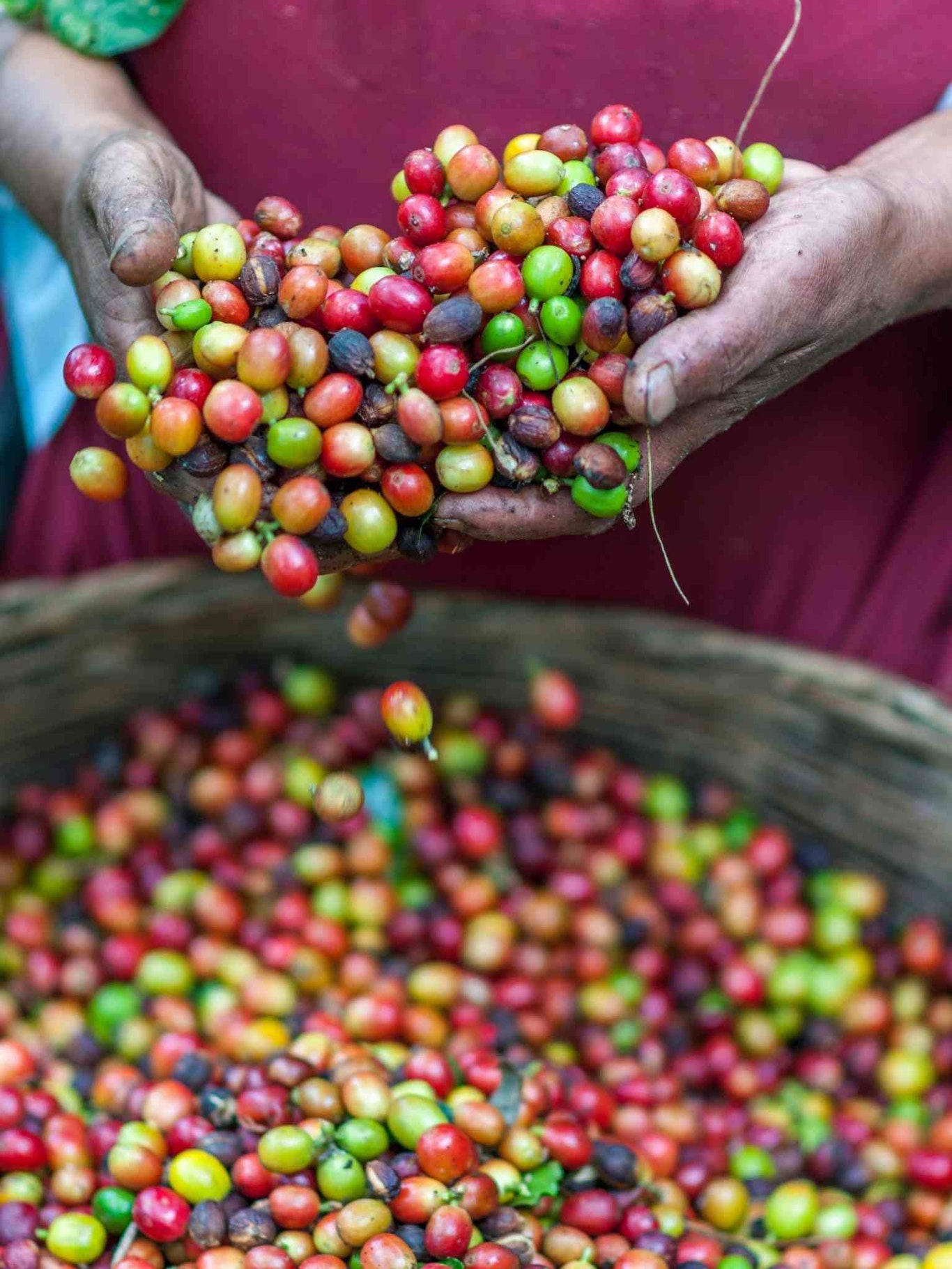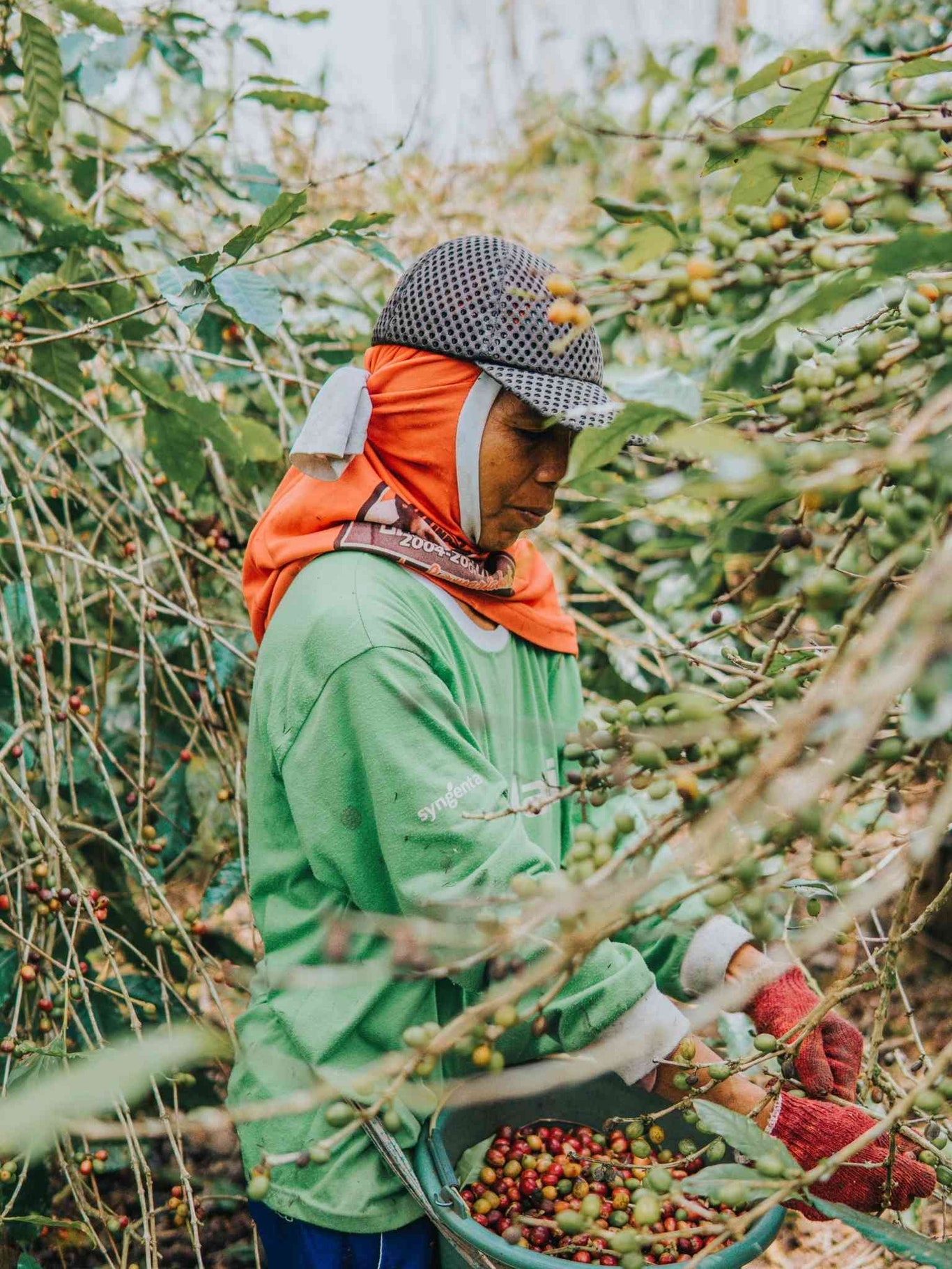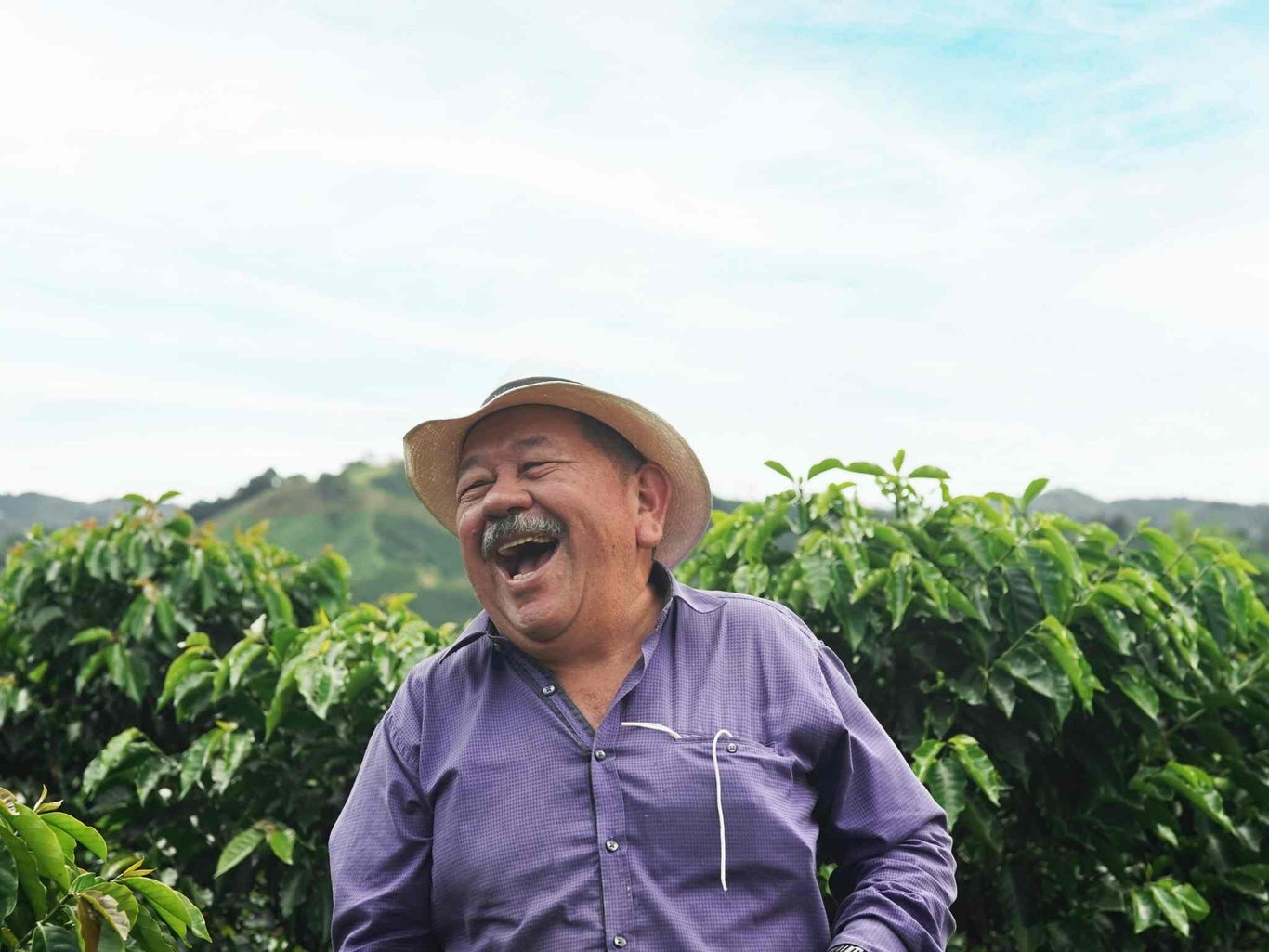11 Dec 2024

Tired Earth
By The Editorial Board

The truth is, away from the flat whites and impressive latte art, the coffee industry is at a breaking point.
Coffee farmers are being crippled by a system that favours profit over people, unsustainable practices threaten the future of coffee farming, and low quality, over-roasted beans are the norm.
We asked independent coffee roasters, Pact Coffee, to share the biggest problems facing the coffee industry today, and whether there’s anything we can do to solve them.
1. Underpaid farmers
How is coffee traded?
Coffee is a commodity that is traded on the New York Stock Exchange. This means that the price of coffee fluctuates daily.
Often, a farmer’s take-home pay doesn’t even cover their production costs.
In fact, the coffee price crisis is so precarious that it’s estimated 44% of smallholder coffee farmers worldwide are living in poverty.
What does Fairtrade coffee mean?
You might assume that buying coffee with a Fairtrade certification on it is the answer, but despite its best intentions, the model is problematic.
Although Fairtrade is intended to provide security to farmers by offering a minimum price they can count on, the flat base price of $1.40 per lb of washed Arabica coffee has remained unchanged for many years.
Furthermore, some coffee companies see Fairtrade accreditation as the ceiling, rather than the floor.

2. The traditional supply chain
When it comes to producing coffee, there is no doubt it’s the farmer we owe the most credit to.
From coffee seed to coffee bean, the labour, patience and skill required is significant.
However, when that coffee bean leaves the farm, it has to pass through many intermediaries before it ends up in our kitchens.
There are roughly 10 middle parties between the farm and cup, and the money for that coffee has to pass through the hands of each party.
Once everyone from the mill to the exporter has taken their cut, the farmer is sadly often left with crumbs.

3. 'Big Coffee'
The demands of ‘Big Coffee’ to supply the world with cheap and readily available beans has meant farmers have had to deforest huge areas of land in order to produce huge volumes of low-quality coffee.
Often, farmers have no choice but to produce as much coffee as their land can possibly manage - regardless of quality - simply to keep up with the pressure.

Pact helps farmers adopt sustainable practices by paying them above a Fairtrade wage
4. Over roasted beans
You might think this is an odd issue to include in a list of problems with the coffee industry at large but hear us out.
The majority of coffee you see on the supermarket shelves is made up of poor-quality blended coffees which have been roasted to a crisp to disguise their bad quality.
Think of over-roasted beans like a piece of toast.
If you lightly toast a piece of bread, you’d be able to tell the difference between say, a sourdough, and your average supermarket loaf.
However, if you burn that toast to a crisp, both bread types will inevitably end up tasting the same.
Sadly, this has become standard practice in the coffee industry to the point where many people assume they enjoy dark, over-roasted coffee because that’s the standard offering.
The priority for Big Coffee retailers is to save and control costs, so it follows that most ‘strong, dark roasts’ are simply code for ‘burnt beans’.
The less knowledge there is about this, the more the cycle of poor quality coffee continues.

“The priority for Big Coffee retailers is to save and control costs, so it follows that most ‘strong, dark roasts’ are simply code for ‘burnt beans’”
5. Gender inequality
In its 2018 report into Gender Equality and Coffee, the Specialty Coffee Association concluded that: “Overall, women earn less income, own less land, control fewer assets, and have less access to credit and market information, and fewer training and leadership opportunities.”
Despite the fact that women often take on the burden of housework and childcare, they are rarely viewed as equals.
Sadly, the cultural and social attitudes to women often perpetuate the problem.
How Planting Trees Combats Gender Inequality in Guatemala.

6. Climate change
The ongoing climate crisis is bad news for coffee plants that are susceptible to rising temperatures and environmental diseases.
One example is Arabica coffee.
75% of the world’s coffee production comes from Arabica plants which thrive in cooler temperatures at high altitudes.
Rising temperatures have meant that much of the usual land available for Arabica coffee has become unsuitable, and the warmer weather has led to a petri dish of pest invasions.
Coffee farmer Maria Pacas says, “In El Salvador, the climate has definitely changed in the past 10 years. Temperatures are rising, and we are having to deal with diseases such as leaf rust and unpredictable weather.”
All of these problems combined often culminate in a bad crop and no income for farmers.

“Rising temperatures have meant that much of the usual land available for Arabica coffee has become unsuitable”
7. The future
If you’ve read to the end of this article, you might be wondering why anybody would want to become a coffee farmer.
Uninspired by what they see, the next generation is uprooting to cities and towns in search of better-paid careers.
As a result, there is a growing skills gap forming at coffee plantation level and there is a big question mark over what the future of coffee farming will look like.
For coffee farming to become a sustainable and profitable business for future generations, things need to change. Big time.
There's got to be a better way
Pact Coffee is on a mission to make coffee better for everyone. Better for farmers, better for coffee lovers, and better for the planet.
By sourcing 100% speciality grade coffee directly, paying farmers 65% above the Fairtrade base price (on average) and championing sustainable farming practices, Pact is committed to transforming the coffee industry from the inside out.
By starting a freshly-roasted coffee subscription, you can enjoy better coffee, and do good with every sip.
Visit Pact Coffee to join the revolution.
Source : pebblemag.com
Comment